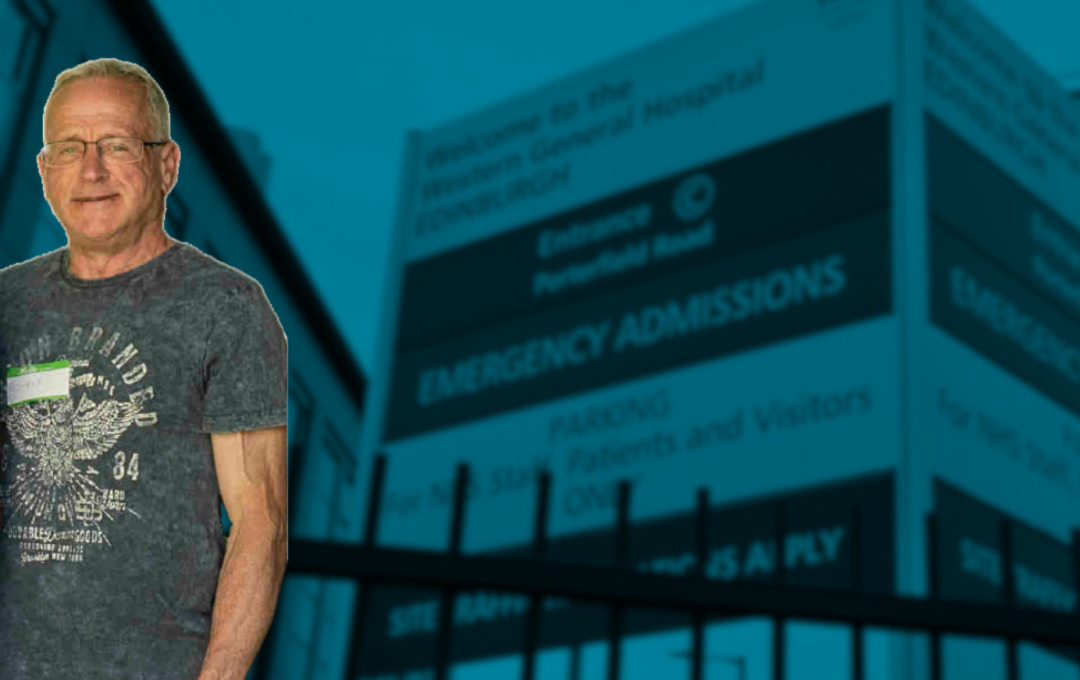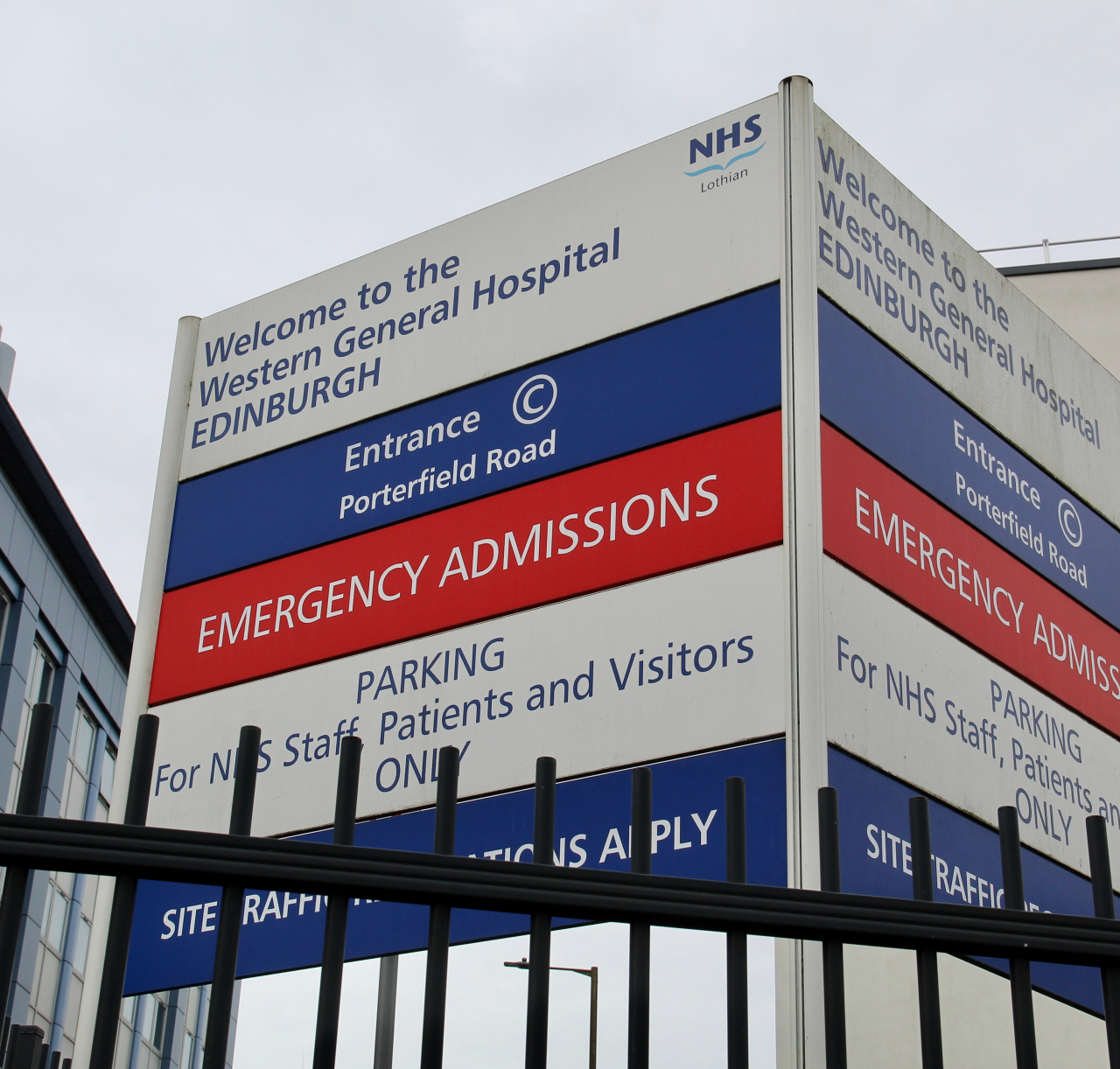Chris' story

Since 2020, the Cyrenians Hospital In-reach programme has operated in two Edinburgh hospitals to improve the outcomes of people admitted to hospital who are experiencing homelessness. Chris works in our Hospital In-reach team and it's his job to listen and to be there for people when they're at their most vulnerable.
"I’ve worked in homelessness support a long time now, and it’s often hard to get people engaged. People having a hard time just don’t want to talk to anyone more than they have to. But working with Cyrenians’ Hospital In-reach service is different, and that’s the biggest thing for me – everyone's happy to see us.
When you’re working with people in hospital, at the start, you’re meeting them at their very lowest. People in homelessness in Edinburgh are a small, close-knit community, but they don’t tend to see any visits in hospital. Anyone who’s been in the community for a while probably doesn’t have great experiences with hospital – too many people go in and don’t come out.
So when people are going into hospital from homelessness, they tend to be really on their own. And it’s our job to help them feel secure enough to stay and see out their treatment. A lot of people don’t have any support in hospital beyond medical care – often we’re meeting people lying in bed in a hospital gown and they literally have no clothes.
If Hospital In-reach had a crest, the motto on it would be “pants and socks” - the first step is just about providing really small stuff; clothes, sweeties and snacks, a clean toothbrush, all the basics any of us would hope someone would bring if we were in hospital.
It can be really lonely being on your own in hospital – you're in a strange place, you’re in pain, all the nurses are too busy to talk, and when doctors talk to you, it can be more confusing than anything else. It’s brutally boring in hospital – it costs money even to have TV to watch, so if you’ve got no money and no visitors, you just sit there. Because we’re not medical staff and we don’t have those massive caseloads, we’ve got the time to sit and talk – share stories, listen to people’s experiences, have a joke and a laugh. We can help “translate” for the medical staff and clear up any of the patient’s worries or lack of clarity about their treatment. But we can also just listen.
My background is in counselling – I did four years as a counsellor – so I know the value of sitting with someone and getting them to trust me and open up. Early on, when I started at Hospital In-reach, I met this woman who was selectively mute, and none of the staff could get any information from her – not her name, her date of birth, anything they’d need to know to identify her. I just sat with her and chatted away to her for hours, helped her feel safe and calm enough to write down her details. It’s things like that that really make a difference.
And some of the best work we can do is making sure people have somewhere safe to go when they’re discharged. While someone’s in the hospital, we’re chasing up their housing – if someone’s got temporary accommodation, we’ll go and make sure it’s still there and ready for them when they get out. If they’re not housed, we’ll work with them to make sure they can get accommodation.
And when they got out of hospital, we make sure we’re there to help people be safe and keep up their appointments. There’s this guy I’ve been working with for near two years, one way or another. He’s got a frame on his leg, and I can help him get to appointments. It’s a small team, but we can offer serious help to get outpatient care just by breaking down those travel barriers, and by coming along with people.
We’re working with medical staff, with social work, housing, communities – we get to build all these great connections and really join the dots. It’s not just the patients who are glad to see us – the NHS staff are really happy we’re here, especially the ones on the wards we work closely with. Because it’s really hard on the hospital staff as well, watching people leave into bad situations and knowing they’ll likely be back in a few months.
Our work’s made a huge difference – people we work with while they’re on the ward are 69% less likely to be readmitted. Knowing we’re here, the medical staff can focus on the medical work, and we can be here for people outside of that. We’re not medical staff, we’re not social work, we’re here to advocate for people and make sure they’re safe, well and in control of their own lives."
Click here for more information about Health and Homelessness services
HOSPITAL IN-REACH
We provide person-centred support.
No-one should have to be alone when they're in hospital, and our team ensure that no-one is.
